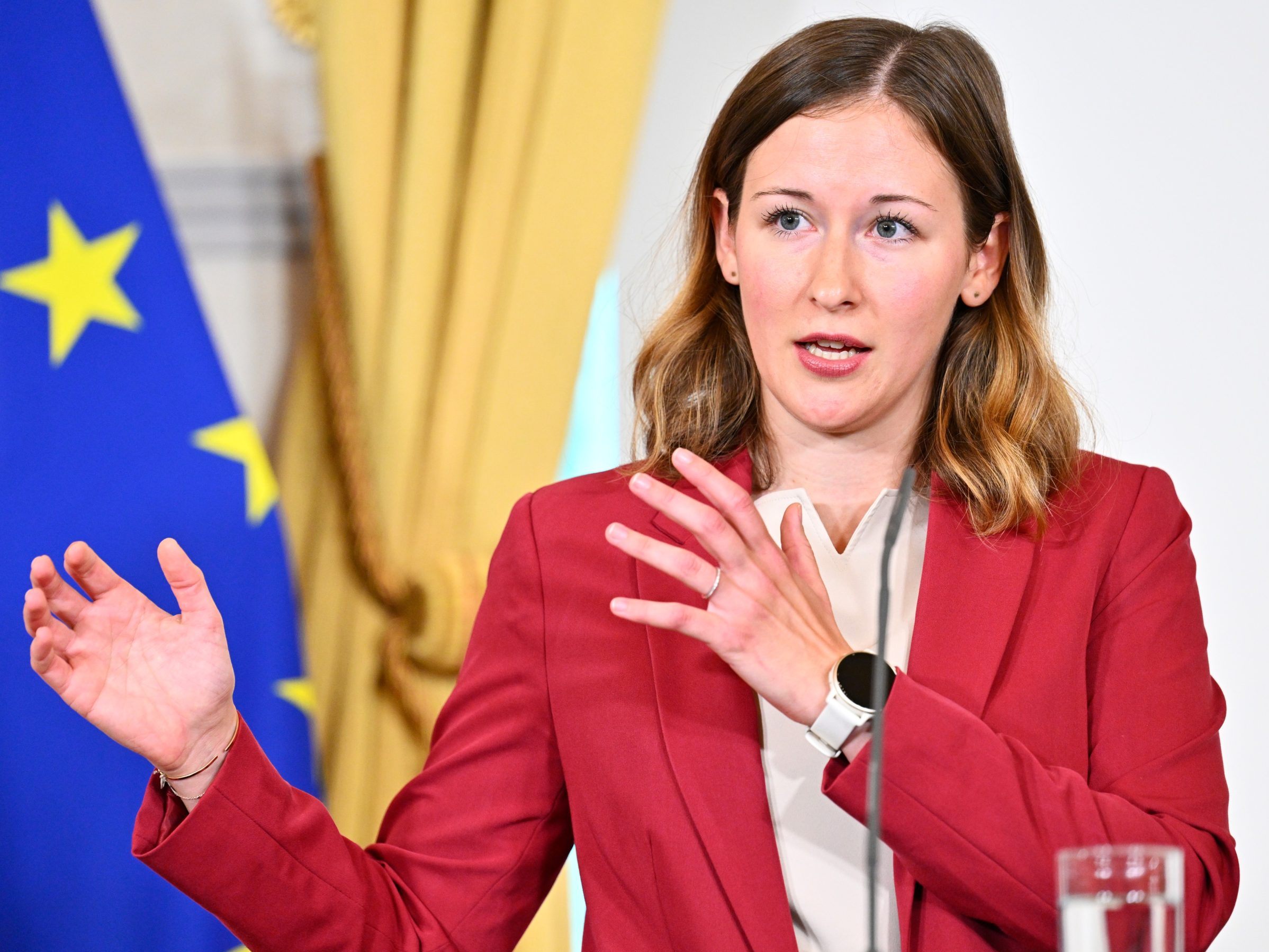Plakolm for Educational Institutions for Delinquent Youth

Before the Council of Ministers, Family Minister Claudia Plakolm (ÖVP) spoke in favor of "reform schools" for delinquent youths. "Whether 'Yes means Yes' is the solution, I dare to doubt," she said. "Because a twelve-year-old cannot say yes in this context."
Plakolm after acquittals: Cannot watch helplessly
SPÖ State Secretary Michaela Schmidt promptly countered. "But a twelve-year-old girl can say no even less," she said when asked after the Council of Ministers. Such a consent principle - as it applies in Spain, for example - was brought up again by SPÖ Justice Minister Anna Sporrer on Monday. "We cannot watch helplessly while twelve-year-olds roam our streets, so to speak, under the freedom of the law and rape girls," said the drastic image painted by the ÖVP Minister. Therefore, reform schools are needed for difficult-to-educate, delinquent youths.
Coalition sees need for action after acquittals
The verdict has highlighted legal loopholes that now need to be closed, emphasized both the pink Education Minister Christoph Wiederkehr and SPÖ State Secretary for State Protection Jörg Leichtfried. Foreign Minister Beate Meinl-Reisinger (NEOS) said the result was "legally understandable, but unsatisfactory for all of us." Currently, it is being examined how the existing sexual criminal law can be further developed, it was said on Monday by the Justice Minister.
The deputy Green club chairwoman and justice spokesperson Alma Zadić meanwhile described it as "regrettable that the Family Minister (Claudia Plakolm, ÖVP, note) prematurely rejected the principle 'Yes means Yes'. It would be urgently necessary to protect women. The issue is too important for party-political bickering."
A reaction to the recent developments came on Wednesday afternoon from the Vienna Regional Court for Criminal Matters, where after a two-day trial and an extensive, largely non-public evidence procedure for victim protection reasons, the ten defendants were acquitted of the charges of violation of sexual self-determination and sexual coercion. "Judgments of the judiciary are fundamentally individual case decisions. They neither assess societal developments nor are they made on demand," noted Christina Salzborn, Vice President and media spokesperson of the Regional Court.
Vienna Regional Court for Criminal Matters Refers to Rule of Law
In the specific case, a jury "came to the conclusion after conducting the evidence procedure that the evidence was not sufficient for a conviction." In a rule of law, "an acquittal must of course be made in case of doubt," emphasized Salzborn to the APA.
Regarding the ongoing criticism of the decision, which has grown to include attacks on the presiding judge on the internet, Salzborn remarked: "Judgments can be appealed and are naturally also subject to public criticism and discussion. However, inappropriate and insulting statements and especially threats against the individuals involved are by no means acceptable. If red lines are crossed here, media law and criminal law steps must be considered."
(APA/Red)
This article has been automatically translated, read the original article here.
Du hast einen Hinweis für uns? Oder einen Insider-Tipp, was bei dir in der Gegend gerade passiert? Dann melde dich bei uns, damit wir darüber berichten können.
Wir gehen allen Hinweisen nach, die wir erhalten. Und damit wir schon einen Vorgeschmack und einen guten Überblick bekommen, freuen wir uns über Fotos, Videos oder Texte. Einfach das Formular unten ausfüllen und schon landet dein Tipp bei uns in der Redaktion.
Alternativ kannst du uns direkt über WhatsApp kontaktieren: Zum WhatsApp Chat
Herzlichen Dank für deine Zusendung.








